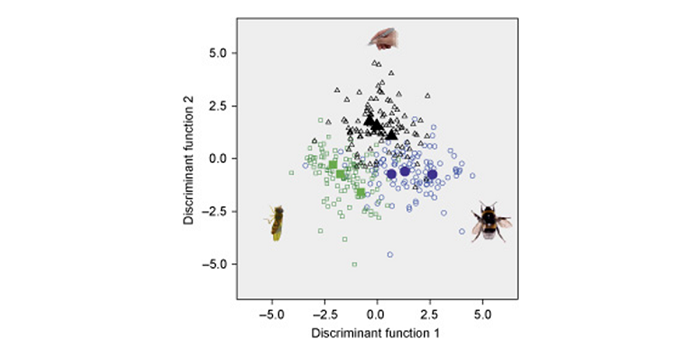
Divergent evolution driven by pollinators
Plant Science Research Weekly, Research0 Comments
/
A great variety of plants rely on pollinators to be fertilized successfully. This close relationship is thought to drive evolutionary diversification in plants, making the presence or absence of pollinators in response to climate change an increasingly relevant matter. Gervasi and Schiestl addressed…
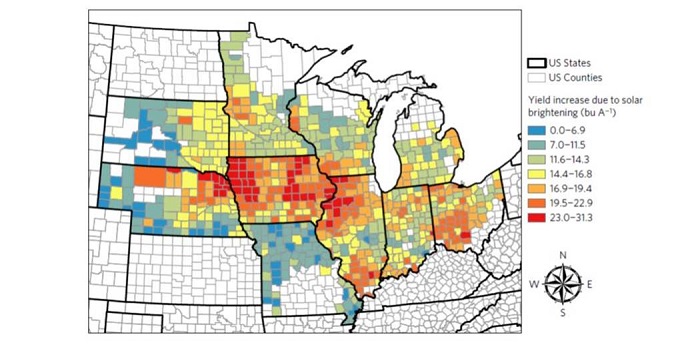
The contribution of solar brightening to the US maize yield trend ($)
Plant Science Research Weekly, ResearchOver the past several decades, the amount of maize produced in the US Midwestern “Corn Belt” has been rising steadily. In order to accurately predict future grain yields, the factors that contribute to these recent yield increases must be identified. Tollenaar et al. found that more than a quarter…

Elevated CO2 does not increase eucalypt forest productivity on low-phosphorus soil ($)
Plant Science Research Weekly, ResearchThe “Law of the Minimum” put forth by Justus von Liebig states that the most limiting nutrient governs plant growth. Although there is evidence in some conditions that increasing atmospheric CO2 levels can enhance plant growth, this only holds true under conditions in which CO2 is limiting growth.…
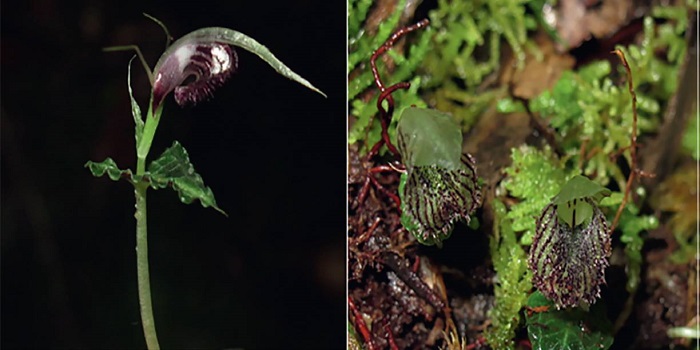
Spotlight: The fate of the world’s plants
Plant Science Research Weekly, ResearchIn 2016, Kew Gardens released a report “The State of the World’s Plants”, which includes estimates of the total number of plant species on Earth and the percentage of those facing extinction. Pimm and Raven delve into those numbers and offer the opinion that many species will be lost before they…

Reducing pesticide use while preserving crop productivity and profitability ($)
Plant Science Research Weekly, ResearchTo safeguard human health and the environment, the French government has called for a nation-wide reduction in the use of pesticides (herbicides, fungicides and insecticides). Towards this end, they have been collecting pesticide usage and yield data from French farmers. Lechenet et al. explored these…

Trees' ability to store carbon in doubt after groundbreaking Australian study
Blog, Research, Research BlogThe ability of trees to offset carbon emissions has been questioned after a Western Sydney University study found common Australian trees are unable to store as much carbon as previously thought.
Published in the Nature Climate Change journal, the research found that Australia's iconic Eucalyptus…

Review: Mycorrhizal ecology and evolution: the past, present and the future
Plant Science Research Weekly, ResearchThere are about 50,000 fungal species that form mycorrhizal associations with about 250,000 plant species. These associations significantly increase plant productivity by increasing nutrient uptake, particularly nitrogen and phosphorus, although with a considerable carbon cost to plants. Van der Heijden…
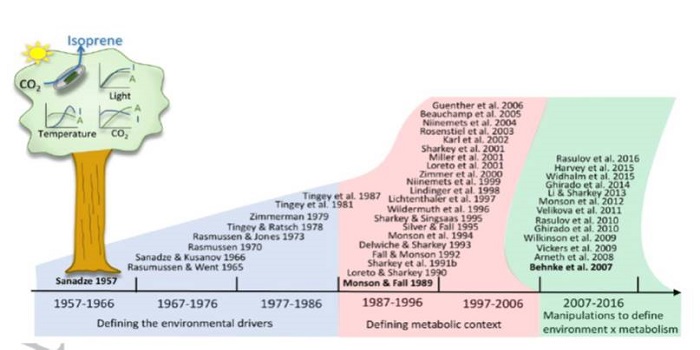
Review: Isoprene research – 60 years later, the biology is still enigmatic ($)
Plant Science Research Weekly, ResearchSixty years ago, the first report of isoprene (C5H8; 2-methyl-1,3-butadiene) emissions from plants was published. Isoprenes are the largest source of non-methane hydrocarbons in Earth’s atmosphere; furthermore, isoprene is reactive in atmospheric chemistry and can be converted into a variety of harmful…
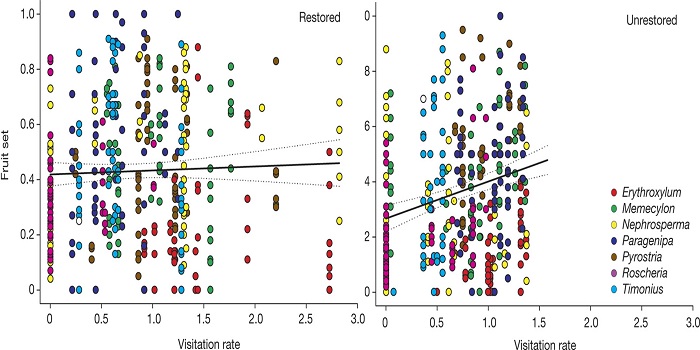
Ecosystem restoration strengthens pollination network resilience and function ($)
Plant Science Research Weekly, ResearchHow does ecosystem restoration affect ecosystem services such as pollination? Kaiser-Bunbury et al. analysed 64 plant-pollinator networks across four restored and four unrestored communities. Restoration involved the removal of all exotic plants (nearly 40,000 individuals). After restoration, over a…

